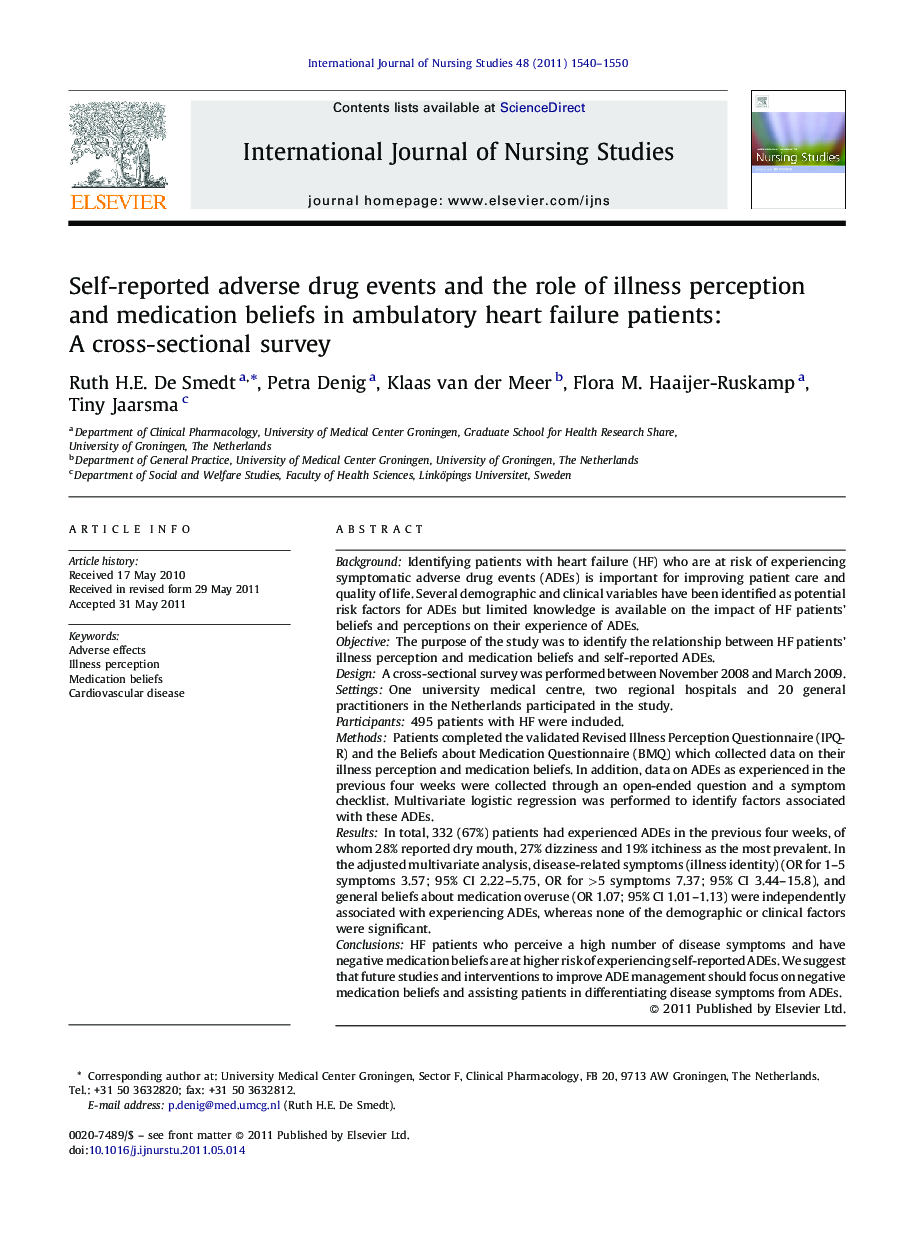| Article ID | Journal | Published Year | Pages | File Type |
|---|---|---|---|---|
| 1076639 | International Journal of Nursing Studies | 2011 | 11 Pages |
BackgroundIdentifying patients with heart failure (HF) who are at risk of experiencing symptomatic adverse drug events (ADEs) is important for improving patient care and quality of life. Several demographic and clinical variables have been identified as potential risk factors for ADEs but limited knowledge is available on the impact of HF patients’ beliefs and perceptions on their experience of ADEs.ObjectiveThe purpose of the study was to identify the relationship between HF patients’ illness perception and medication beliefs and self-reported ADEs.DesignA cross-sectional survey was performed between November 2008 and March 2009.SettingsOne university medical centre, two regional hospitals and 20 general practitioners in the Netherlands participated in the study.Participants495 patients with HF were included.MethodsPatients completed the validated Revised Illness Perception Questionnaire (IPQ-R) and the Beliefs about Medication Questionnaire (BMQ) which collected data on their illness perception and medication beliefs. In addition, data on ADEs as experienced in the previous four weeks were collected through an open-ended question and a symptom checklist. Multivariate logistic regression was performed to identify factors associated with these ADEs.ResultsIn total, 332 (67%) patients had experienced ADEs in the previous four weeks, of whom 28% reported dry mouth, 27% dizziness and 19% itchiness as the most prevalent. In the adjusted multivariate analysis, disease-related symptoms (illness identity) (OR for 1–5 symptoms 3.57; 95% CI 2.22–5.75, OR for >5 symptoms 7.37; 95% CI 3.44–15.8), and general beliefs about medication overuse (OR 1.07; 95% CI 1.01–1.13) were independently associated with experiencing ADEs, whereas none of the demographic or clinical factors were significant.ConclusionsHF patients who perceive a high number of disease symptoms and have negative medication beliefs are at higher risk of experiencing self-reported ADEs. We suggest that future studies and interventions to improve ADE management should focus on negative medication beliefs and assisting patients in differentiating disease symptoms from ADEs.
► Many patients with heart failure experience adverse drug events (ADEs). ► Patients perceiving more disease symptoms more often experience ADEs. ► Negative medication beliefs are associated with experiencing ADEs. ► Demographic and clinical characteristics are not associated with self-reported ADEs.
